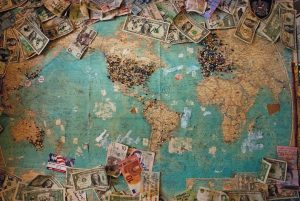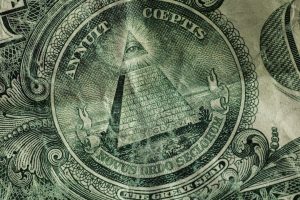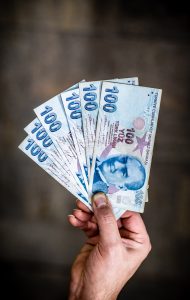Forex, also known as foreign exchange, is the largest financial market in the world with trillions of dollars traded on a daily basis. It is a decentralized market where currencies are bought and sold. The question is, where does the money come from in Forex?
Forex trading involves the buying and selling of currencies. When a trader buys a currency, they are essentially exchanging one currency for another. For example, if a trader buys the Japanese Yen, they are selling their own currency (such as the US dollar) to purchase the Yen. This exchange is made at the current exchange rate, which is determined by the supply and demand of the currencies.
The money in Forex comes from a variety of sources. Firstly, it comes from banks and financial institutions who trade currencies to facilitate their international business transactions. For example, if a US company wants to import goods from Japan, they would need to pay in Yen. The US company would then exchange their US dollars for Yen, and this exchange would take place in the Forex market.
Secondly, money in Forex comes from individual traders and investors. These traders buy and sell currencies with the aim of making a profit. They may buy a currency when it is undervalued and sell it when it becomes overvalued, or they may use technical analysis to predict market movements and make trades accordingly.
Another source of money in Forex comes from speculators. These are traders who do not have any underlying business need for the currencies they are trading. Instead, they are purely looking to profit from the movements in exchange rates. Speculators may use leverage to increase their potential profits, but this also increases their potential losses.
The Forex market is also influenced by central banks and governments. Central banks may intervene in the Forex market to stabilize their currency or to influence the exchange rate. For example, a central bank may buy its own currency to increase its value or sell its own currency to decrease its value. Governments may also influence the Forex market through their economic policies and decisions.
In addition, money in Forex comes from brokers and market makers. Brokers act as intermediaries between traders and the market, facilitating trades and providing trading platforms. Market makers provide liquidity to the market by buying and selling currencies at a set price. They make money by charging a spread, which is the difference between the buying and selling price of a currency pair.
Finally, money in Forex comes from arbitrageurs. These are traders who take advantage of discrepancies in exchange rates between different markets. For example, if the exchange rate for the US dollar to the Euro is higher in one market than in another, an arbitrageur may buy US dollars in the lower-priced market and sell them in the higher-priced market to make a profit.
In conclusion, Forex is a complex market with money coming from a variety of sources. Banks, traders, investors, speculators, central banks, governments, brokers, market makers, and arbitrageurs all contribute to the liquidity and volatility of the market. Understanding where the money comes from in Forex is important for traders and investors looking to make informed decisions and maximize their profits.






